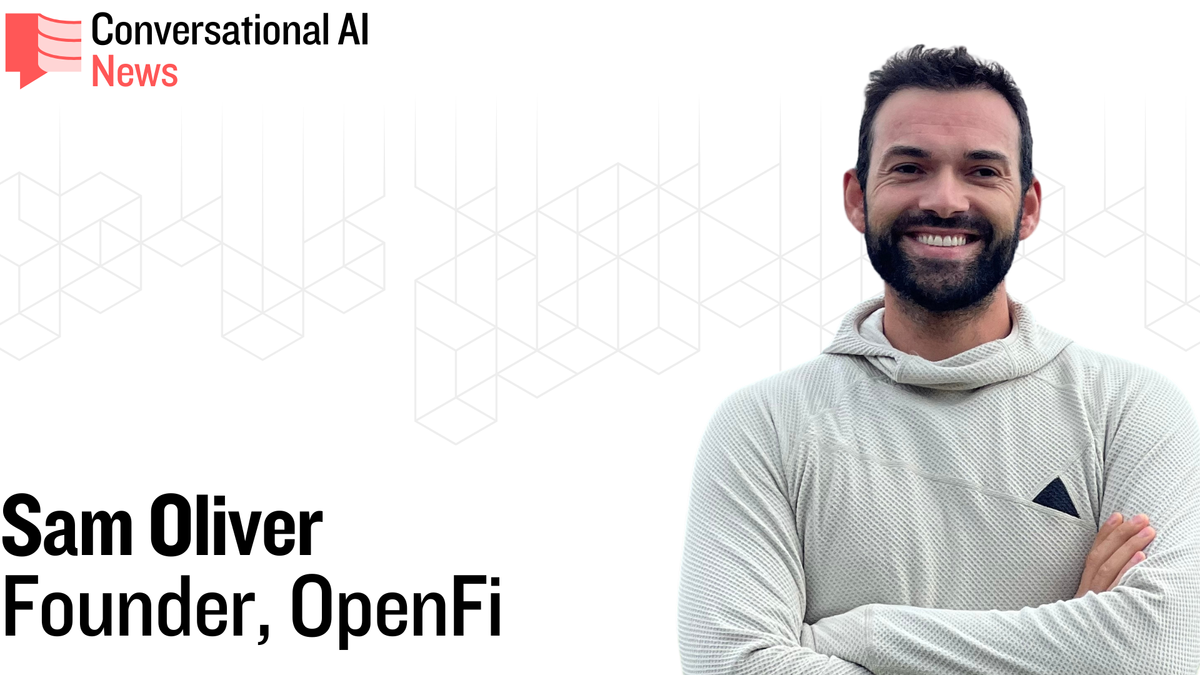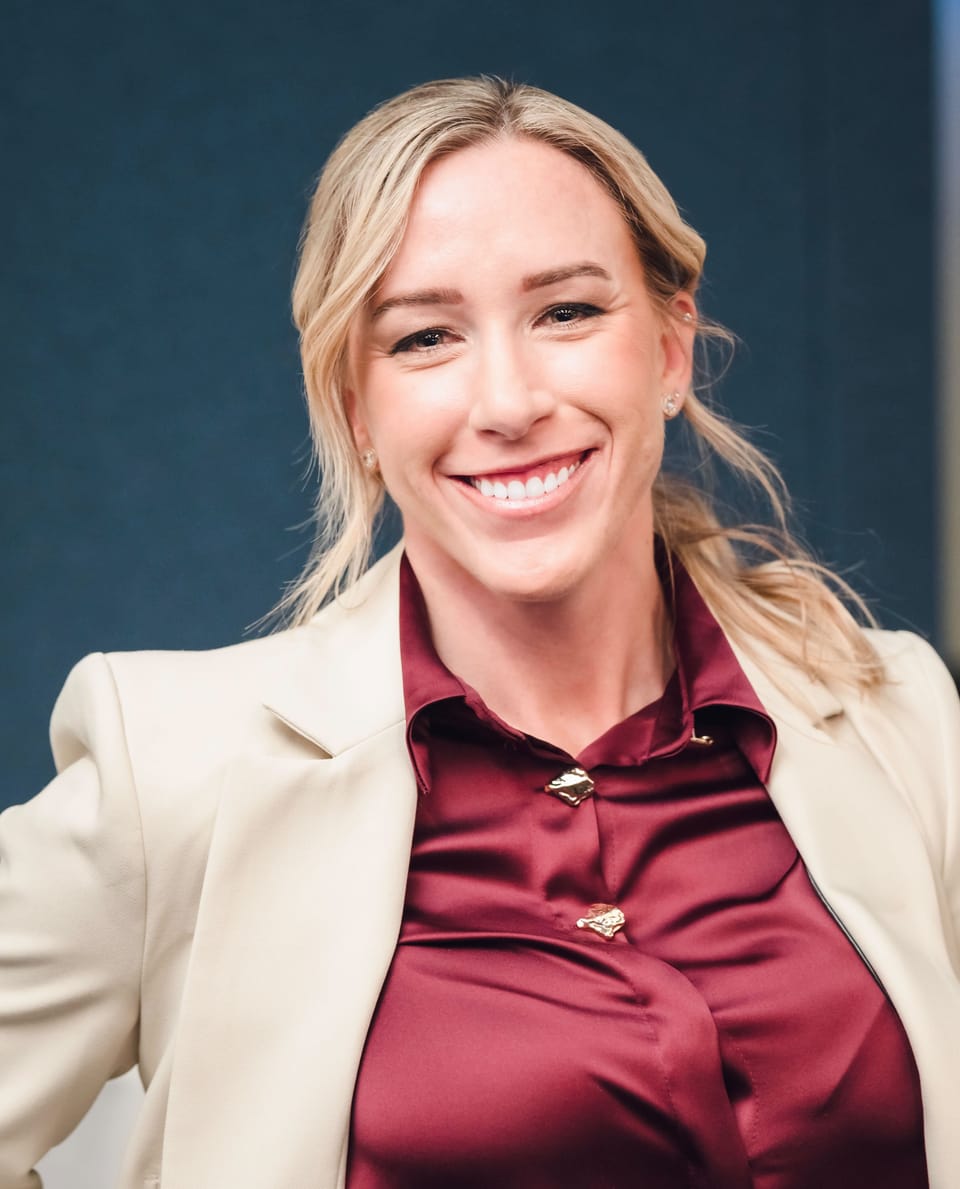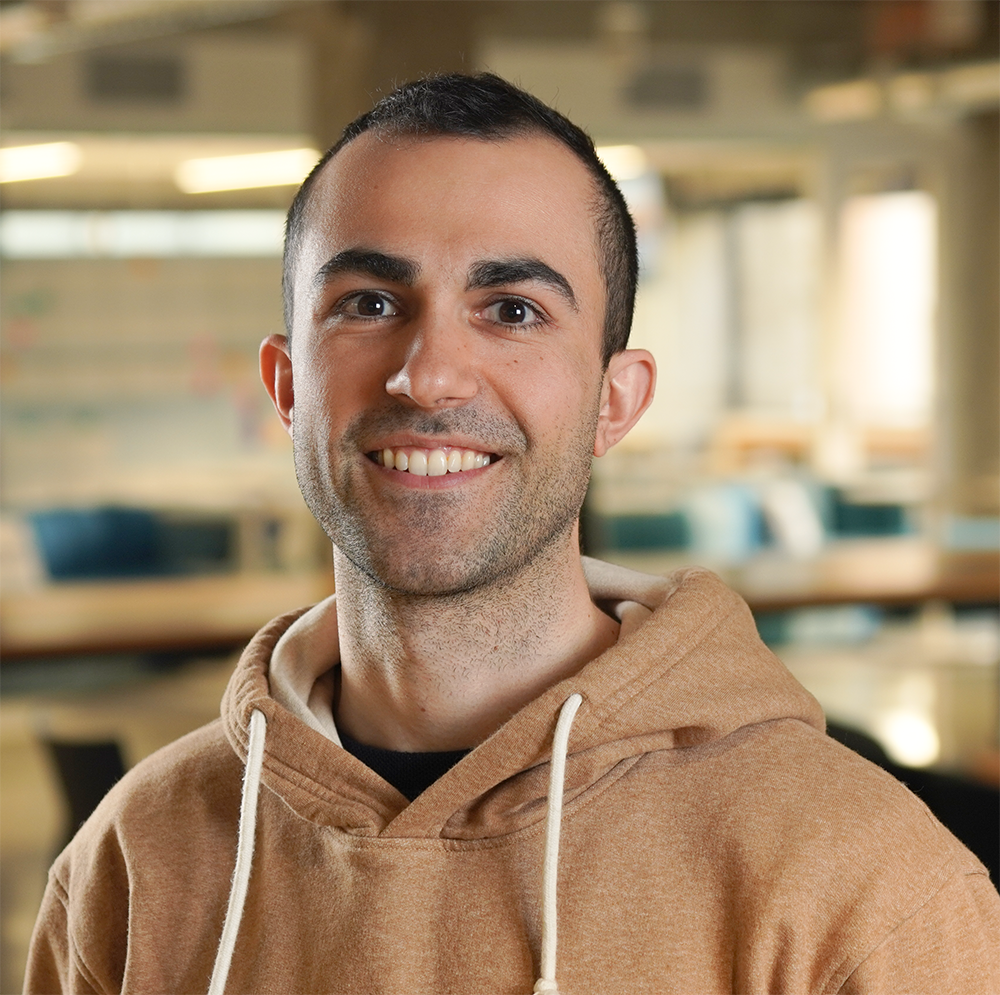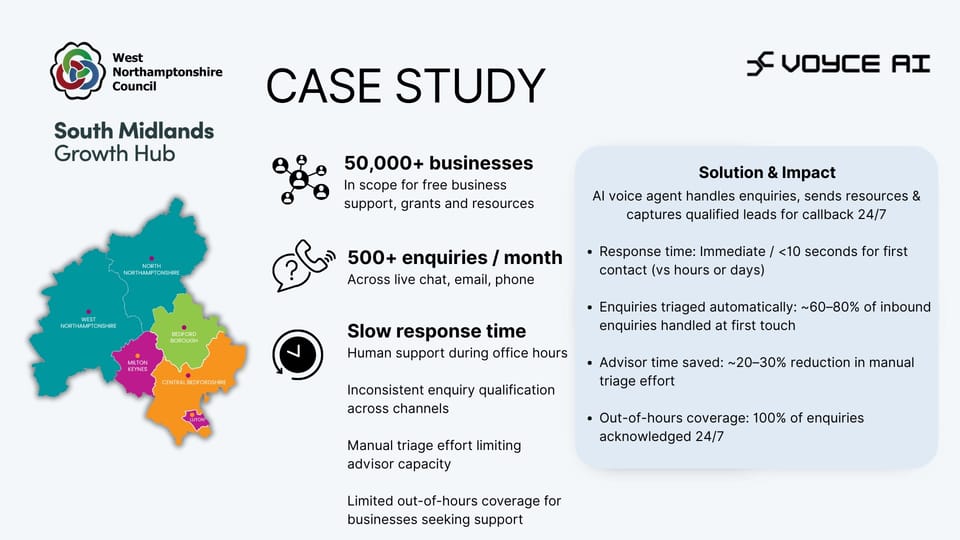Exclusive Interview: Sam Oliver, founder of OpenFi talks Sales AI

Do you remember we covered the news of OpenFi's launch recently?
I reached out to the founder, Sam, to see if it would be possible to interview him and I'm delighted to say he kindly accepted.
Sam is a serial founder and is a deeply experienced operator. The focus and energy he brings as the leader of OpenFi were apparent from the moment we started talking.
What's absolutely fascinating is the progression of ideas that OpenFi represents. As Sam explains below, together with his team, he's used the learnings of the past 10+ years with his other highly successful businesses to underpin the approach and the objective for the company.
Put differently, he didn't wake up yesterday and think, "here's an idea" – so much of the new business is a direct result of the knowledge and experiences of the previous ones. That razor focus on product-market-fit is perhaps just one reason why they've been able to win so many compelling, high profile customers in a short time.
Right - let's begin with the interview. My questions are in bold.
Over to you Sam!
Ewan: Can you give us an overview of your background?
Sam Oliver: So I followed the traditional career path: After High School, I went to university and being a homebody, I stayed in Edinburgh and went to Edinburgh University. At the same time I was working in Lettings and I got very frustrated with online advertising. This was back in 2009 so it's the time where social media was really just being born. It's absolutely kicking off – and there I was, studying chemistry. I remember thinking, do I really want to become a chemist? Edinburgh University has a great Entrepreneurship Club. They bring in a lot of speakers who have started their own business, especially from the alumni. That exposure inspired me to start a company together with a friend from uni who was studying computer science.
I took the risky strategy of deferring for a year. We built an advertising tool for landlords which automatically posted syndicated rental adverts. We were picked up by Virgin Media Pioneers which resulted in us receiving money from Richard Branson. We also got 50k funding from a Pitch Competition – we were essentially bootstrapped and didn’t need any additional angel funding and it worked very well. Until a competitor that had raised £12m in VC funding launched and provided the same service for free, effectively driving us out of the market. They since went bust btw!
My second company, LeadPro, was a property technology company offering marketing automation software to Estate Agencies. We scaled that over five years to 37% of the UK Market. We sold the company to private equity in 2021. I left that company in January 2023. I let my brain cool down after a hectic earn out and then decided I was super keen to take the lessons that I'd learned and iterate on running a new company and so OpenFi was born.
What is the background to establishing OpenFi?
Sam Oliver: So my last company LeadPro, we processed over 10 million leads a year of individuals who were usually wanting to buy a house. One aspect of LeadPro is that it will ask individuals: “Do you need mortgage advice?” and if they say yes, then the system asks if they’d like to be referred to a mortgage broker.
We integrated with the four largest mortgage brokers in the UK and we had a lot of analytics about how well they converted leads. However in many cases, these individuals were very early in their mortgage journey. They didn’t have a house selected, for example. So typically the brokers didn't get great immediate results – and didn’t have the technology to automate the nurturing of these leads over time.
That’s the opportunity we saw.
OpenFi originally started as Open Financial Intelligence and we intended to build nurture software specifically for mortgage brokers. But then very early we pivoted to recognising that actually what we were really doing was automating the SDR (“Sales Development Representative”) role, and that was applicable to all Professional Services industries not just finance services.
The SDR is the person who normally talks to a new lead to see if they’re a good fit for the product, answers some initial questions and then books them in for a call with the broker – and fills in the CRM system too. We’ve called this offering SalesTalk AI. So our entire focus right now is to automate that role, starting with the mortgage industry.
How did you develop your technology?
Sam Oliver: We contracted a third-party development agency to help us create a proof of concept MVP. That is a more expensive option, but it’s much faster because we didn’t need to recruit and manage a full team. So that’s worked really well. We started with an MVP in February and since that got great feedback which helped us to raise funding. We’ve now gone on to hire a full time internal development team. We’re using a mixture of LLM technology together with a lot of customisation to make it do precisely what we want. For example, we take all the information from the broker’s website and integrate this into the AI, together with all sales team onboarding and training documents – teaching the AI to understand the company’s knowledge base.
We then partnered with some mortgage brokers as pilot users. We used their pre-qualification questions and sales scripts to help construct the initial prototypes and then we began testing with customers.
The results were good enough for us to obtain some paid pilot contracts in financial services.
How are you finding the response from Financial Services clients?
Sam Oliver: Very positive. So many banks know that this technology – artificial intelligence – is amazing, but they are still very much exploring practical use cases. We’re also seeing situations where the boards and senior executives are pressuring their teams to actively investigate how they can use the technology.
For example, the chairperson of one broker we’re working with instructed their management team to develop an AI strategy and to make sure their institution is ahead of the curve from an experimentation and adoption standpoint.
What’s fascinating for us is that we’ve immediately hit product-market-fit in that respect. The timing is excellent: So many banks and brokers just don’t have the time or resources to manage that SDR nurture approach effectively - so we’re getting a very positive reception.
So we like to think that we’re building very focused superhumans: One is the Farmer, and one is the Hunter.
The Farmer takes inbound customer traffic and qualifies it, before forwarding to human agents for action.
The Hunter is taking existing client data and reaching out to customers who, although there is consent to contact them, they haven’t been contacted for years. Many institutions have a big database of mortgage renewals. For example, a customer who is 4.5 years into a mortgage relationship: The Hunter reaches out to the customer, picks up that conversation and begins a nurture process that might last for months. The Hunter will then, eventually hand over the conversation to the bank’s human agents at the right time.
What’s your strategy when it comes to customer channels - for example, you mention WhatsApp as a key channel for SalesTalk AI?
Sam Oliver: WhatsApp is the largest messaging channel in the world with 3.3 billion active monthly users. It’s also super-rich in terms of its capability – everything from files, videos – it’s far superior to SMS. It’s got fantastic spam protection and it's something customers have already adopted. For us, it’s an amazing channel. Very few institutions have adopted WhatsApp so we’re looking closely at how we can use it as a primary engagement platform. The long term goal is to be omni-channel, giving the customer the ability to connect with the businesses on the communication channel which best suits them.
Can you explain how institutions would implement SalesTalk AI?
Sam Oliver: It’s a straightforward process. First of all, we need to import their knowledge base. Not just your website, but all of your material, collateral, manuals and documentation. Then we need to evaluate your sales and pre-qualification scripts to replicate those. And then we typically need to do some kind of CRM and website integration.
The easiest method is to simply put a WhatsApp button on your website, so there’s no hunting around for a contact us page. You can just click on WhatsApp and start asking questions. You don't even have to put in a name. You can get straight into a dialogue immediately.
Is there a tension between your product, SalesTalk AI and the other software driving a wider, generic customer-service offering for the bank?
Sam Oliver: I learned a lot of lessons with my previous company – and one of those key learnings was to stay in your lane – and focus on what you’re good at. So we won’t be doing anything to service existing customers. The only metrics we are driving for our clients are new business leads (the farmer) or renewal leads (the hunter).
Does that mean you’ll play nicely – technically and otherwise – with other more generic AI customer service platforms that might already be installed?
Sam Oliver: Absolutely. Given our focus is on sales and lead generation, we can be plugged into an existing AI platform or we can standalone - whichever makes more sense for the customer.
What’s your philosophy between voice and text interactive models?
Sam Oliver: My view is don't try to run until you can walk. So text is a great starting place for us. Voice will come later.
Can you give an overview of pricing and your business model?
Sam Oliver: Yes. For smaller companies, for example a small mortgage broker processing 500 leads a month – but they don’t have the capacity to respond to everyone, the cost is £499 per month.
For larger companies with higher volumes that want to manage their inbound leads (the farmer) but also do outbound nurturing of existing customers (the hunter), the cost is £1,999 a month. There’s obviously a little more setup needed there to get the outbound activities working effectively.
Finally, for those companies that are handling huge volumes – for example, we’re talking with several institutions with half a million incoming enquiries a month, then we have a similar pricing approach but based on volume.
Where do you see the future for OpenFi more broadly?
Sam Oliver: We’ve adopted a platform strategy. Our commercial objective for the next 18 months is to be the number one Conversational AI app in the Salesforce App Store. Salesforce has 24% Global CRM market share and of its customer base, one third is Professional Services. This is ideal for us because it's everything from accounting to marketing to dentistry – and all of these have got lead values in excess of £1,000 per lead.
So if an appointment is worth over £1,000 for a business, then they likely have the budget and interest to optimise the SDR activities. So the perfect customer, long term, is doing over 500 leads a month and using Salesforce, with an average lead value over £1,000.
There’s a quote on the OpenFi website saying, “Conversational AI is 100X better than old chatbots.” Can you say more about your view there?
Sam Oliver: Yes. It’s night and day. The difference between what we can do with Conversational AI today and the chatbots from yesteryear, is just astonishing. Some of those old chatbots are still in production at many institutions even today!
Looking into the near future, Conversational AI will feel like you are talking to the very best sales person in the whole business. It will have read every single sales transcript from hundreds of thousands, or millions of conversations at its company. It will know exactly how to help you – and how to optimise the sale from the company’s standpoint and from your perspective. It will be up to date on every single regulation and legislation, and it will have every single product detail to hand, including the answers to every question that’s ever been asked by customers. It’s going to be such a huge win for the company and the consumer. This is where we are heading.
Who else do you think is doing great work in the Conversational AI space?
Sam Oliver: I’d like to highlight the great work that the team at chatbase.co are doing: They offer a custom “GPT” for your website – you import all relevant data (sales collateral, for example) then you define the behaviours you want and then embed it straight on to your website. Although it’s an entirely different focus from ours here at OpenFi, I think it’s a great example of enabling companies to rapidly test, learn and adopt new technologies such as Conversational AI.
Fantastic! Thank you so much for taking the time, Sam. Good luck to you and the team.
If you'd like to connect with Sam, here's his LinkedIn profile:

Visit the OpenFi website at https://www.openfi.tech/.















